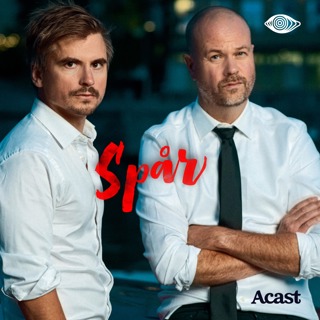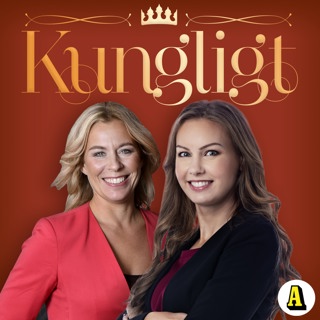
We've Never Had It So Good
It's 2014 and what does Britain have to look forward to? Osborne’s welfare cuts. An umpteenth series of Celebrity Big Brother. Adult children still living at home and cadging off the Bank of Mum and Dad (repayment not guaranteed). That’s the gripe of the Debbie Downers, but give a thought to how life used to be even within living memory. Buttoned up emotions. Casual racism. Meagre defences against disease and infection. And no internet. Surely life is better now than it’s ever been before? On 22nd January we brought together a star panel to slug out the arguments in our debate “We’ve never had it so good”. Two of Britain’s most brilliant and sardonic writers, Will Self and Rod Liddle, opposed the motion. And the journalist and satirical novelist Rachel Johnson and Jesse Norman, the brilliant Tory MP who has been hailed as a man to watch even in the pages of the Guardian, proposed it. Support this show http://supporter.acast.com/intelligencesquared. See acast.com/privacy for privacy and opt-out information. Learn more about your ad choices. Visit podcastchoices.com/adchoices
31 Jan 20141h 38min

An Evening With Slavoj Zizek
Radical philosopher, polymath, film star, cult icon, and author of over 30 books, Slavoj Žižek is one of the most controversial and leading contemporary public intellectuals, simultaneously acclaimed as the ‘Elvis of cultural theory’ and denounced as ‘the most dangerous philosopher in the West’. In this special lecture for Intelligence Squared from July 2011, Žižek argues that global capitalism is fast approaching its terminal crisis and that our collective responses to economic Armageddon correspond to the five stages of grief – ideological denial, explosions of anger, attempts at bargaining, followed by depression and finally acceptance of change. Referencing everything from Kafka, the "Hollywood Marxism" of Avatar, the Arab Spring and WikiLeaks, he presents a roadmap for finding a way beyond the madness. Support this show http://supporter.acast.com/intelligencesquared. See acast.com/privacy for privacy and opt-out information. Learn more about your ad choices. Visit podcastchoices.com/adchoices
24 Jan 20141h 32min

Let Them Come: We Have Nothing To Fear From High Levels Of Immigration
Does mass immigration boost our economy and cultural richness or undermine them? Hear Times columnist David Aaronovitch, former Mayor of London Ken Livingstone and the economist Susie Symes go head to head with UKIP's Nigel Farage, Demos director David Goodhart and journalist and author Harriet Sergeant, over our motion "Let them come: we have nothing to fear from high levels of immigration". The debate took place at London's Royal Geographical Society on 10th October, 2013. Support this show http://supporter.acast.com/intelligencesquared. See acast.com/privacy for privacy and opt-out information. Learn more about your ad choices. Visit podcastchoices.com/adchoices
17 Jan 20141h 50min

Steven Pinker on The Better Angels of Our Nature
We launch our first podcast of the year today – our 2011 talk by the world renowned American cognitive scientist Steven Pinker. In it he argues that, contrary to popular belief, we are living in the least violent period of history. And that even the horrific carnage of the last century, compared to primitive societies, is part of this trend. Pinker claims that, thanks to the spread of government, literacy and trade, we are actually becoming better people. Support this show http://supporter.acast.com/intelligencesquared. See acast.com/privacy for privacy and opt-out information. Learn more about your ad choices. Visit podcastchoices.com/adchoices
10 Jan 20141h 30min

Verdi vs Wagner: The 200th Anniversary Debate with Stephen Fry
Think opera and you think Verdi. Verdi created some of the most beloved operas of all time, from the romantic tragedy of La traviata and Rigoletto to the Shakespearian dramas of Macbeth, Otello and Falstaff Verdi’s music transcends the barriers between high and low culture. Many of his arias count among the greatest songs ever written, streaming out of opera houses and into football stadiums and even the charts. Verdi was also the outstanding cultural figure at the heart of the unification of Italy, the musical father of the Risorgimento. Who needs Wagner when Verdi offers such richness? People who truly appreciate great music, say the Wagnerians. Wagner’s music is on an altogether more intellectual sphere. You hum Verdi; you think Wagner. Here is opera, and music, at its epic, definitive height. To know The Ring is to be fully immersed in opera at its greatest technical brilliance and compositional originality. To appreciate Wagner’s music is not to forgive his political views, but to cast them aside... — We’d love to hear your feedback and what you think we should talk about next, who we should have on and what our future debates should be. Send us an email or voice note with your thoughts to podcasts@intelligencesquared.com or Tweet us @intelligence2. And if you’d like to support our mission to foster honest debate and compelling conversations, as well as ad-free podcasts, exclusive bonus content, early access and much more, become a supporter of Intelligence Squared.. Just visit intelligencesquared.com/membership to find out more. Learn more about your ad choices. Visit podcastchoices.com/adchoices
24 Dec 20131h 52min

Eric Schmidt On The New Digital Age
Eric Schmidt is one of the leading visionaries of our time. He has taken Google from a small start-up to one of the world’s most influential companies. In this conversation with Bryan Appleyard from May 2013, he sets out the themes of his new book 'The New Digital Age: Reshaping the Future of People, Nations and Business', which he has co-authored with Jared Cohen, director of Google Ideas. These include: - new technologies that will change lives: information systems that increase productivity, thought-controlled motion technology that will revolutionise medical procedures, and near-perfect translation systems that will allow us to communicate with anyone on the planet. - the threat to privacy and security: how much of these will we have to sacrifice to be part of the new digital age? - the politics of the hyperconnected world: who will be more powerful, the citizen or the state? - the threat of cyberterrorism: will technology increase or undermine our security? — We’d love to hear your feedback and what you think we should talk about next, who we should have on and what our future debates should be. Send us an email or voice note with your thoughts to podcasts@intelligencesquared.com or Tweet us @intelligence2. And if you’d like to support our mission to foster honest debate and compelling conversations, as well as ad-free podcasts, exclusive bonus content, early access and much more, become a supporter of Intelligence Squared.. Just visit intelligencesquared.com/membership to find out more. Learn more about your ad choices. Visit podcastchoices.com/adchoices
21 Dec 20131h 30min

An Anatomy Of Truth: Conversations on Truth-Telling
Not everyone tells the truth. ‘Read my lips: no new taxes.’ ‘This isn’t going to hurt.’ ‘I see no ships, my lord.’ ‘Of course I love you.’ When can we know what to believe? Four out of five of us don’t think politicians tell the truth, according to a recent MORI poll. But is telling the truth always the right or best thing to do? If it isn’t, what happens to trust? If it is, are there different kinds of truth? Do we always want to hear the truth? Do different professions need to have systemically different attitudes to truth-telling? Is there a moral difference between outright lies, falsehoods, deceits, dissimulation and just plain old ‘economy with the actualité’? In October 1013, Intelligence Squared headed to London's Westminster Abbey to discuss truth with a politician (Jack Straw), a journalist (Max Hastings), a scientist (Professor Robert Winston) and a poet (Wendy Cope). — We’d love to hear your feedback and what you think we should talk about next, who we should have on and what our future debates should be. Send us an email or voice note with your thoughts to podcasts@intelligencesquared.com or Tweet us @intelligence2. And if you’d like to support our mission to foster honest debate and compelling conversations, as well as ad-free podcasts, exclusive bonus content, early access and much more, become a supporter of Intelligence Squared.. Just visit intelligencesquared.com/membership to find out more. Learn more about your ad choices. Visit podcastchoices.com/adchoices
20 Dec 20131h 38min

Putin Has Been Good For Russia
There’s not a lot to like about Vladimir Putin: he’s autocratic, vain and runs a corrupt government. And he doesn’t give a fig for human rights. The repression in Chechnya, the jailing of the (now pardoned) businessman Mikhail Khodorkovsky and the Pussy Riot protesters, the murders of journalist Anna Politkovskaya and of Alexander Litvinenko, the former spy – all this happened on Putin’s watch. Who would not be on the side of the 100,000 people who turned out on Moscow’s streets last winter to protest against Putin’s election to a third term as president and to demand fair elections and an honest government? Russia would be better off without Putin – who would argue otherwise? As a matter of fact, millions would. Talk to many Russians and they’ll tell you that life under Putin is vastly better than under Boris Yeltsin. Yeltsin let a handful of oligarchs hoover up Russia’s wealth while ordinary Russians were reduced to selling their possessions on the street. Putin, by contrast, has quelled the economic... — We’d love to hear your feedback and what you think we should talk about next, who we should have on and what our future debates should be. Send us an email or voice note with your thoughts to podcasts@intelligencesquared.com or Tweet us @intelligence2. And if you’d like to support our mission to foster honest debate and compelling conversations, as well as ad-free podcasts, exclusive bonus content, early access and much more, become a supporter of Intelligence Squared.. Just visit intelligencesquared.com/membership to find out more. Learn more about your ad choices. Visit podcastchoices.com/adchoices
20 Dec 20131h 38min





















